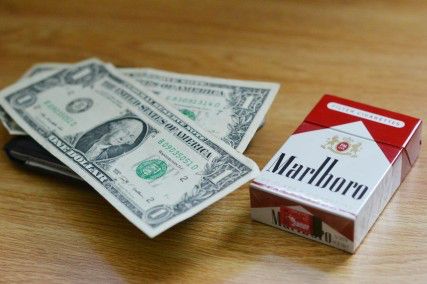
Massachusetts legislators plan to propose a $1 tax increase on cigarettes and other tobacco products (OTBs) to decrease the number of youth tobacco users and prevent addiction.
“At any income level, youth are the most price-sensitive population. Although raising the tax encourages cessation across the board, it has a more dramatic effect on youth,” said Kevin O’ Flaherty, director of advocacy of northeast region for the Campaign for Tobacco-Free Kids.
When cigarette taxes increase by 10 percent, youth consumption decreases by 6.5 percent, and adult consumption rates by 2 percent, according to a Centers for Disease Control and Prevention “Youth Tobacco Use in Massachusetts” survey. Since 1995, cigarette smoking among youth has declined from 35.7 percent to 14.0 percent in 2011.
In earlier fiscal years, legislators neglected to raise the tax on OTBs as well. Between 2003 and 2009, there was a 14-percent increase in consumption of OTBs among youth.
“We are encouraging the state to create an equal tax on both cigarettes and smokeless tobacco so the state doesn’t create an uneven market condition that encourages kids to use one tobacco product over another,” O’Flaherty said. “… We are not just trying to get youth to stop smoking and using tobacco products, but also help ensure that they never start.”
O’Flaherty said the Campaign for Tobacco-Free Kids projects this cigarette tax increase will decrease consumption among youth by 11.2 percent. Additionally, this tax increase is projected to raise about $160 million in revenue for the state annually.
Marc Hymovitz, state director of government relations and advocacy for the American Cancer Society Cancer Action Network, said there is enough evidence from the last 20 years to prove that each time the tax increases, there is a quick reduction in utilization and a significant increase in revenue.
“When you look at where the highest smoker rates are, lower income [people] have a higher smoking rate as they are more price sensitive,” Hymovitz said. “If you increase the price, we are more likely to get lower income people to stop smoking.”
Sarah Forman, a sophomore in the College of Communication, began smoking cigarettes during her sophomore year of high school, but has recently decreased her consumption for financial reasons.
Although she has not completely stopped consuming cigarettes, she does not buy packs nearly as often.
“When I was about 18, I bought packs in Virginia for about $4 or $5,” Forman said. “I was paying about $10 a pack in Massachusetts, so I began rolling my own cigarettes at that point.”
Although this is one way of increasing revenue to education, transportation and infrastructure, Michael Siegel, a community health sciences professor at Boston University’s School of Public Health, said this revenue should specifically be raised for tobacco-related programs.
“Massachusetts used to have a strong tobacco-control programs, but the funding for that program has been decimated in recent years,” Siegel said. “There is no excuse for these programs not to be funded.”
If the state raises the cigarette tax, but does not allocate the revenue toward tobacco prevention and cessation programs, Siegel said the Commonwealth is essentially balancing the budget on the shoulders of smokers.
“Smokers are not the ones who are benefitting from the money — in general, smokers are a lower-income population,” Siegel said. “The only way to ensure that this tax increase is a fair one is if the revenue goes toward the smoker.”